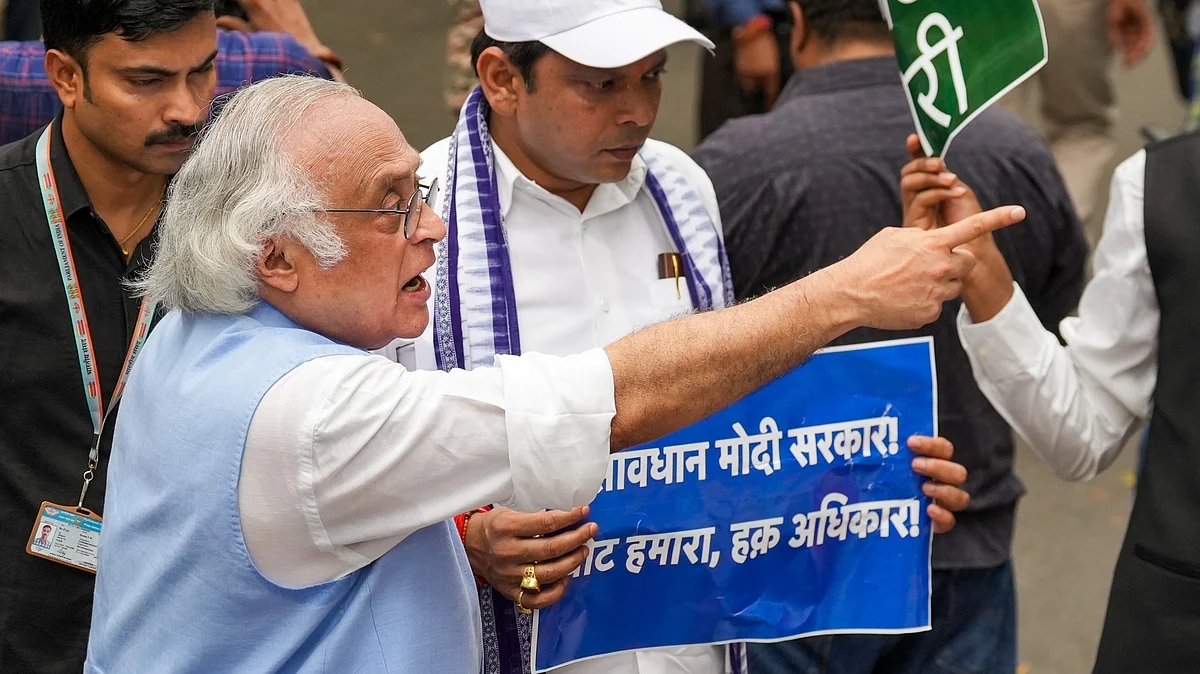Want GST 2.0 to be Good and Simple Tax not Growth Suppressing Tax: Congress
Over the last seven years, spirit of GST has been vitiated by an increased number of rates and granting of multiple exemptions, says Ramesh

The Congress on Saturday, 16 August, demanded that the Centre release an official discussion paper on “GST 2.0” to enable a wider national debate on reforms to the indirect tax system, arguing that the regime must evolve into a “Good and Simple Tax” rather than the “Growth Suppressing Tax” it has become.
The demand came a day after Prime Minister Narendra Modi, in his Independence Day address, announced that GST rates would be reduced by Diwali to ease the burden on households and support economic growth. The Union Finance Ministry later said it has proposed replacing the current four-rate structure of 5 per cent, 12 per cent, 18 per cent and 28 per cent with a simpler two-slab system — standard and merit — while reserving special rates for select items.
Congress general secretary Jairam Ramesh noted that a restructured GST was a key pledge in the party’s 2024 Lok Sabha manifesto, and said the government had finally acknowledged that growth cannot accelerate without such transformation.
“Over the last seven years, the spirit of GST has been vitiated by an increased number of rates and the granting of multiple exemptions. The structure also seems to have facilitated evasion. There must be a drastic reduction in the number of rates,” Ramesh said in a statement.
He further called for:
Simplification of rates while ensuring minimal revenue uncertainty for states.
Extension of the GST compensation cess beyond March 2026 to offset revenue risks from rationalisation.
Meaningful relief for MSMEs, including higher thresholds for interstate supplies.
Sectoral reforms in areas such as textiles, tourism, exports, handicrafts, and agricultural inputs.
Incentives for states to move towards including electricity, alcohol, petroleum, and real estate under the GST ambit.
Ramesh emphasised that GST 2.0 must balance simplicity with compliance, while safeguarding the fiscal stability of states.
"GST 2.0 should be truly a Good and Simple Tax (GST) in letter, spirit, and compliance, not like the Growth Suppressing Tax (GST) it has become," Ramesh said.
PM Modi, meanwhile, described the upcoming reforms as “next-generation GST” that would reduce the tax burden on daily-use items, benefit MSMEs, and boost consumption. “This Diwali, I am going to make it a double Diwali for you,” he declared.
Rolled out on 1 July 2017, GST subsumed a host of central and state-level taxes but has since faced criticism over its complexity, litigation, and compliance burdens.
With PTI inputs
Follow us on: Facebook, Twitter, Google News, Instagram
Join our official telegram channel (@nationalherald) and stay updated with the latest headlines
